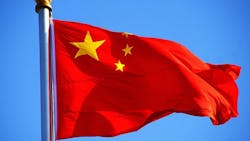China Forex Reserves Rise Unexpectedly in June
China’s foreign exchange reserves unexpectedly increased by $13 billion last month, officials said on June 7, as pressure on its currency the yuan to depreciate apparently eased.
The world’s largest currency hoard rose to $3.21 trillion in June, the People’s Bank of China said.
The result follows months of declines as China sold dollars to defend the yuan against depreciation caused by capital outflows as its economy slows.
A forecast by Bloomberg News had predicted the reserves would decline $20 billion.
Part of the increase is explained by the rising value in recent weeks of the Japanese yen, which makes up some of China's foreign exchange reserves, while capital outflows from China seem to have slowed.
"The latest numbers nonetheless underline that pressure on the currency has eased significantly, for now at least," research firm Capital Economics said in a note.
It added that the figures implied China received $19 billion of net capital inflows in June, the first time that such inflows have outpaced outflows since 2014.
China's total forex reserves remain down 20% from their $4 trillion peak in 2014.
The yuan fell to its lowest since 2010 this week, pressured by rising demand for the safe-haven dollar and the yen after Britain voted to leave the EU.
That suggests that China will begin to run down its reserves again in the near future, to avoid more rapid depreciation, analysts said.
"The yuan will drop further as Beijing apparently has a bias for depreciation due to the weaker economy, which will lead to more outflows and pressure the reserves in the second half," Nathan Chow, an economist at DBS Group Holdings Ltd told Bloomberg News.
China's economy grew at its slowest rate in a quarter century last year, and a gauge showed activity in Chinese factories suffered its sharpest deterioration for four months in June.
The figures were the latest to highlight a long-running growth slowdown in the country as the global outlook weakens.
Copyright Agence France-Presse, 2016
